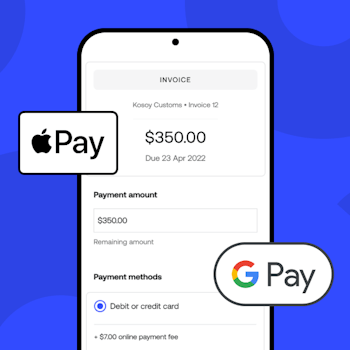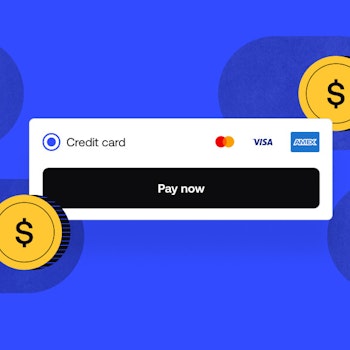How to deal with rejection and bounce back stronger than ever
Freelancing is an excellent option for many, but it’s certainly not for the faint of heart. Though you might be at the top of your game professionally, you’ll have to forge your own path, and without a doubt, you’ll need to learn how to deal with rejection.
You’ll inevitably have pitches turned down no matter how good you are. You may receive critical feedback for the work you submit. There may be a big project you get your hopes up for that gets passed to another freelancer. There are so many different ways you can experience rejection when you work for yourself.
Rejection hurts. Don’t let it stop you.
The road to success almost always has a few setbacks along the way. It’s how you approach them that counts. Rejection hurts. For creatives, it’s even more challenging because it cuts to the heart of your reason for being.
But if you can take your emotions and ego out of the equation—and yes, we know that’s tough to do when you’re such a hot ticket—but a good attitude is the key to moving forward and gaining ground. In many cases, the rejection you face has little to do with you, personally, and that’s what you have to keep in mind.
Believe it or not, a little failure is good for you. If you can deal with rejection constructively, you’ll come out the other side much stronger, more resilient, and ultimately, unstoppable. So, let’s talk about how to deal with rejection and how to bounce back quickly.
Why does rejection hurt so much?
Let’s face it; if we didn’t get rejected once in a while, life would be pretty flat-line.
Believe it or not, we humans experience rejection as physical pain. Even with past rejections, dredging up those memories will bring back the pain in all its intensity—even more than the memory of a bodily injury.
But why is that?
Way back in our evolutionary ancestry, rejection was as good as a death sentence. If we were excluded from the tribe, it’s unlikely we’d survive. Our brains evolved to create a physical pain response from rejection, which served as an early warning system—those who did, gained an evolutionary advantage.
Ultimately, we are pack animals. We need to feel like we belong, and rejection destabilizes that need, causing emotional pain.
This fact is precisely why being part of a supportive group or community helps us recover from rejection. The pain is assuaged when we connect with those with whom we have an affinity and those who value and accept us for who we are and what we offer. On the other hand, if we feel alone and disconnected following a rejection, it will have a negative impact on our behavior, resulting in stress, anger, and plummeting self-esteem.
So, why does rejection hurt? After all, it’s just one person’s opinion. But it’s personal. When you’re a freelancer, rejection comes in many guises. And it stings all the more when you’ve put your heart and soul into something only to lose the bid or have it turn into a one-off.
Take a note from actors and musicians who face rejection every single day. You can also take a page from their scripts because no matter what happens, it doesn’t stop them from putting themselves back out there.
Dealing with rejection in a healthy way
Dealing with rejection doesn’t come easily to most people. Like any skill, it takes a while to cultivate and finesse. The trick is not to let it hold you back. No matter how devastating it seems in the moment, it’s vital to understand where it’s coming from and not take it too personally.
Often, it’s just the client. Some just aren’t as diplomatic or tactful as they ought to be. Others think they can abuse freelancers simply because there is no face-to-face interaction.
It’s a tough go when you really want the job, but the client’s personality or style is abrasive. Hopefully, in time you’ll be able to build your freelance business to the point where you can turn down the one that gets under your skin. In the meantime, you might have to deal with rejection occasionally. Having a few coping strategies in your back pocket is always a good idea.
Seven coping strategies to help you learn how to deal with rejection
Here are our top tips for dealing with rejection. They’re simple, actionable, and they’ll serve you well when your stress level starts to rise.
1. Take a step back. Breathe. And focus on self-care.
The worst thing you can do when dealing with rejection is to double down. You need to get some separation from the situation—and your environment.
If you have a quiet place in your house you can go, do it. Maybe you have a music or media room, a balcony, a patio, or a backyard where you can grab some sunshine and fresh air. Turning your attention elsewhere is the key activity. Distract yourself. Play some music. Go for a walk or a run in the neighborhood, maybe do a quick workout. Leave your phone in the office. Shut down the computer.
Thirty minutes is usually all it takes to reset the synapses and get a lighter perspective on what just happened.
2. Don’t deny your feelings
The important thing here is not to deny those emotions. Many people tend to suppress intense feelings because they see it as a sign of weakness, or maybe they don’t have the confidence to face their problem head-on. Denying your feelings or compartmentalizing them will not make them go away.
In fact, if you don’t deal with them, they might cause even more damage down the line, both professionally and personally. Whatever you do, don’t ever tell yourself you shouldn’t feel a certain way. Ultimately, they are your feelings, so you need to own them. Otherwise, you can’t grow as a person.
Process your emotions
It doesn’t matter much if the rejection was subtle or a massive blowout; the feelings are often the same. Until you learn how to process your feelings, you won’t be able to do your best work. People process their emotions differently. Some practice meditation to clear their mind and gain perspective. Others prefer to talk to a friend or colleague to work it out. If you can separate your emotions from the event itself, both will be easier to process.
Keep a journal
One way to process your thoughts is to write down what you’re feeling. Once you’ve got it all on paper, pair those feelings up with the thoughts that are going through your head. This exercise puts some distance between your emotions and the incident and will help you cope better because you’re not in the middle of it.
3. Use self-affirmations
Take a moment and make a list of your best qualities. Think about your strengths, your ideals, your values, and what makes you unique. This is not about what you aspire to be; it’s about what makes you who you are. Some examples might be:
· I am kind and thoughtful.
· I have a curious mind.
· I am an excellent listener.
· I learn new skills quickly, and I’m always looking for ways to better myself.
· I have thrived through adversity, and I’m stronger for it.
· I help others be their best self.
· I feel proud of myself when I ______
· I trust that I am on the right path.
· I make a difference in the world every day.
· I am incredibly good-looking and have excellent taste.
Your affirmations are yours alone
The most important thing about self-affirmations is that they should resonate with you. Write your affirmations down in your journal and read them aloud each morning before you begin work. To reinforce the positivity, reread them just before you go to sleep.
You might even choose a mantra to repeat as you fall asleep, which is a proven self-hypnosis technique. It could be something like, “every day in every way, I am getting better and better.” Repeat this ten times as you drift off, and the idea will settle in your psyche, hopefully, to manifest itself in your waking hours.
4. Spend time with people you love
There is nothing more grounding and life-affirming than spending time with people you love. Whether it’s family or friends, they are the ones who care about you and want to see you succeed just as much as you want it for yourself.
Talk to them about the rejection you’ve experienced and see how they lift you up. Chances are, you’ll get an immediate lift that will tell you in no uncertain terms that you are loved, appreciated, valued, and worthy.
Don’t close yourself off
Dealing with rejection is never easy, but turning to those you care about will help to chase out the damaging, self-deprecating thoughts that chip away at your self-worth.
5. Think about the people you love the most
Sometimes, the people you love aren’t there to prop you up. Perhaps they are far away or in another time zone where you can’t just pick up the phone and call anytime you need to hear their voice.
Do you have a photo of them? Or maybe a video of the two of you doing something fun together? Revisiting those memories can be just as grounding and life-affirming as an in-person visit. If it helps, keep the photo in a place where you can see it all the time and get comfort from it. Even when you’re on your own, knowing you are loved and cherished is a powerful force.
6. Be kind to yourself
If you don’t know how to deal with rejection, it’s easy to beat yourself up about the words or events that led up to it. Dwelling on what happened isn’t going to make it better, nor will it make you better.
The truth is, there is nothing wrong with you. The real disconnect likely had more to do with a poor fit. And when you think about it, if the match truly is a poor fit, the rejection was a blessing in disguise.
You have value
As any freelancer will tell you, there is nothing worse than being locked into a gig where you’re constantly butting heads with the client or the team you’re working with. Not everybody thinks the same way.
Not everyone will get along. Not every client will love your ideas—but you don’t have to torture yourself for the sake of a job that’s going to take a toll on your sanity and wellbeing. Negative self-talk, dwelling on the rejection or taking it as a reflection of your value, just lengthens the process unnecessarily.
So be kind to yourself. While it might not be the last time you have to deal with rejection, you’ll get better at letting it roll off your back.
7. Nurture healthy habits
Being able to deal with rejection and take it in stride is partially about mindset, but a strong, nourished body and soul help a heck of a lot. If you’re new to freelancing and getting inundated with a ton of work, be sure to squeeze in enough time to eat well, stay hydrated, get enough sleep, exercise, and have a life. In any of these areas, imbalance will raise cortisol levels (the stress hormone), making it even more of a challenge to deal with rejection.
Feed your body and soul
No matter how much you love your work, you can’t bring your best self to it unless you have balance in the rest of your life. So, manage your time well. Schedule in time for yourself. Do things that make you happy and remember—nothing is worth beating yourself up for.
Successful people have one thing in common: they never give up
Even top entrepreneurs face setbacks and rejection, but they bounce back quickly, learn from the experience, and quickly get back in the saddle.
As a freelancer, you’ll likely have to learn how to deal with rejection. Do not let it stop you! Leverage that rejection to help you bounce back. Cast in a different light, rejection can make you stronger, wiser, and more resilient than ever before.
What's the way to deal with rejection for you? Join the conversation in our supportive community of freelancers and get more useful tips to navigate your path to success.
Related Articles

How to accept credit card payments on Invoice2go in 3 simple steps

Accept payments online via Apple Pay and Google Pay

Must-not-miss write-offs as you wrap up 2022 year-end finances

5 ways accepting credit and debit card payments helps your business stay resilient

4 easy ways to increase cash flow today

What is Small Business Saturday and why is it important?
The features and surprising benefits of a well-designed packing slip
